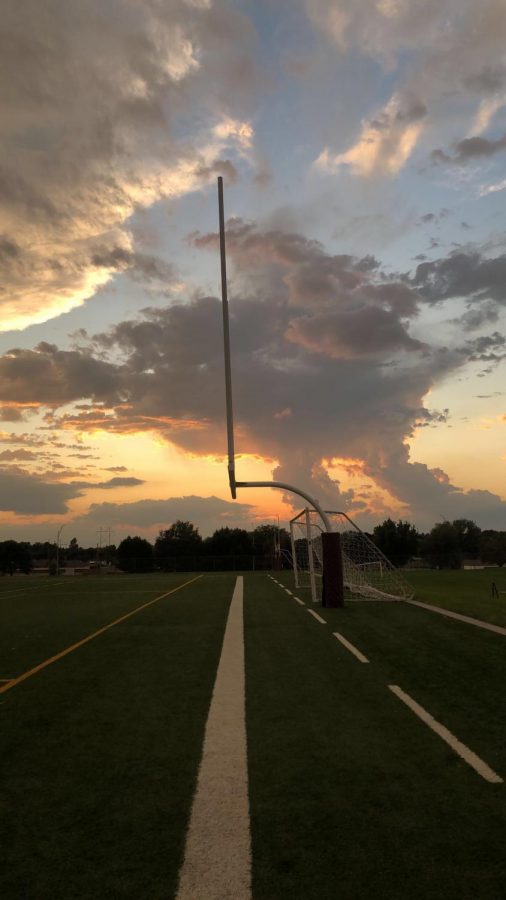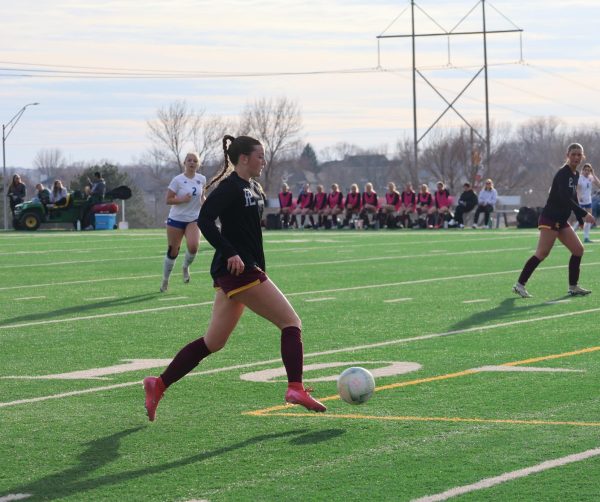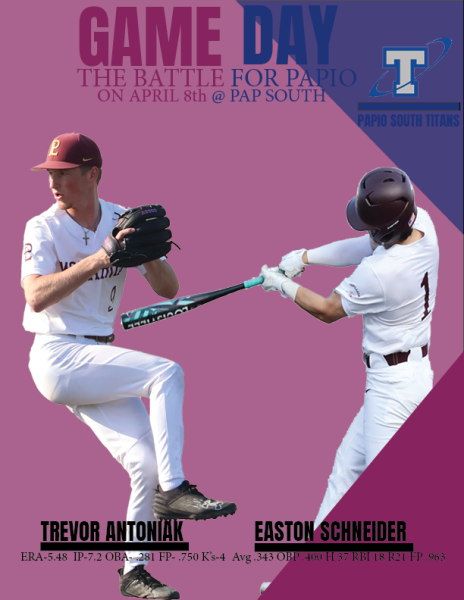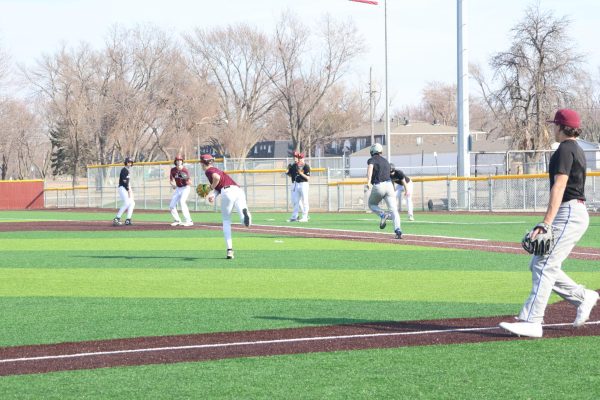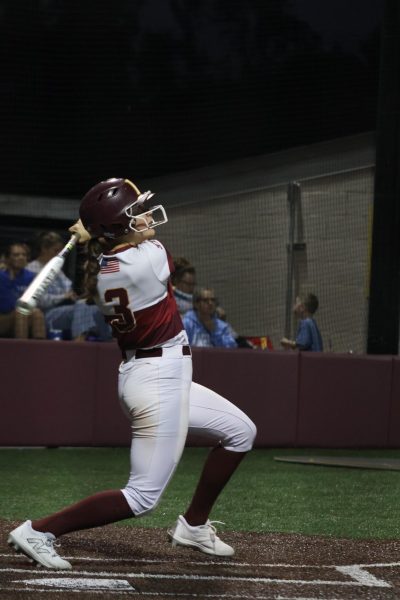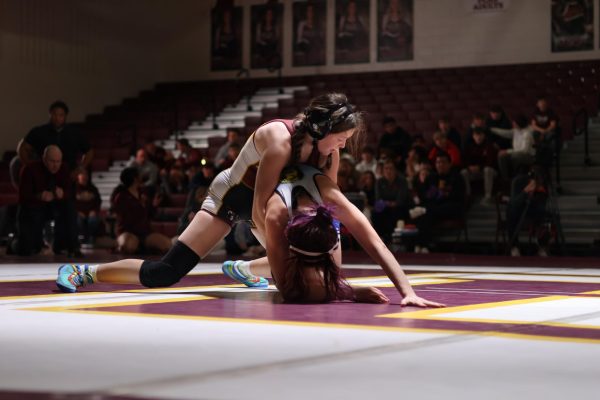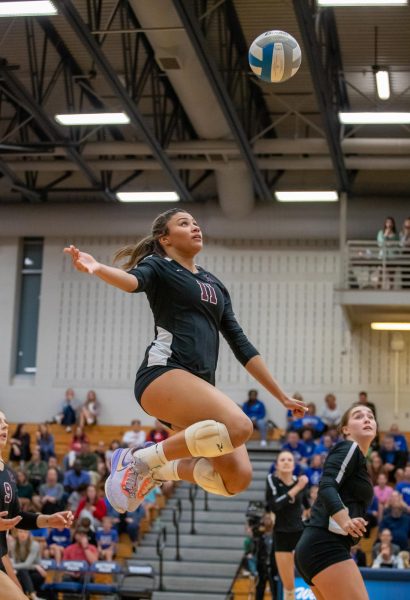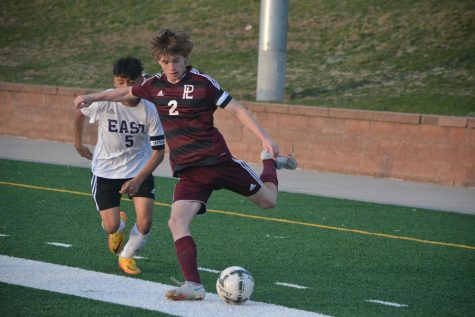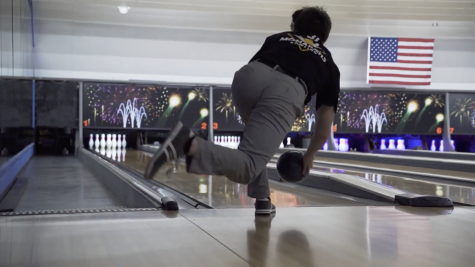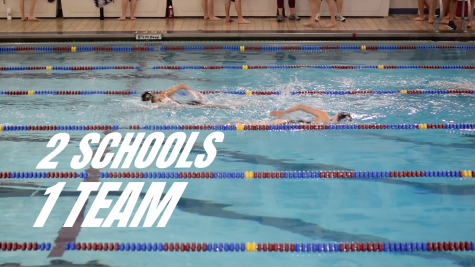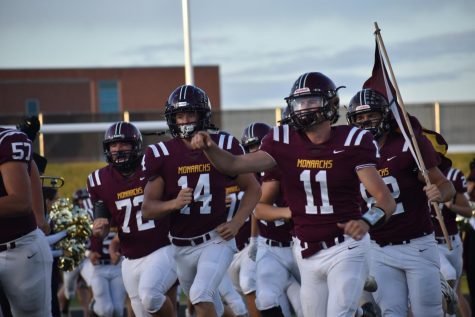Bringing Controversy to the Nation’s Most Innocent League
As states continue to pass bills allowing college athletes to be compensated, the NCAA responds by combating these bills.
A high school football field at Papillion-La Vista High School, where many future college athletes get their start in joining competitive college athletics.
In 2014, Electronic Arts (EA) and the National Collegiate Athletic Association (NCAA), were sued for using college athletes’ images and likenesses without compensating the players. After the trials, college athletes were awarded $60 million dollars by a federal judge. After the money was awarded, EA had to halt all production on NCAA products and games. Therefore, 2014 was the last year an NCAA football video game was released. Fans, not only of the video game, but also of college football in general, have been hungry to play the widely renowned game ever since its departure, hoping for changes in strict NCAA rules about players profiting of their likeness.
Currently, college athletes are restricted by NCAA rules on earning a profit, not only for their likeness, but also as a salary for the hours on the field and in the gym. This means NCAA players aren’t legally allowed to make money by doing local or national advertisements. The student-athletes are also restricted from selling autographs, or signing deals with sports-wear companies like Nike, Adidas, Rebook, etc. This has led to hundreds of college athletes across the nation struggling to earn solid money with the time and effort they put into sports, and in the classroom, causing many student-athletes to push for a change in this portion of the NCAA’s strict guidelines.
Recently, the state of California approved a law that would allow NCAA athletes in the Golden State to hire agents and profit off their likenesses. This could – of course – change the way traditional powerhouse schools in California, like the University of Southern California (USC), the University of California Los Angeles (UCLA), Stanford, and many others recruit their athletes and promote their school to students.
The NCAA Board of Governors sent a letter to the state senate notifying them that if the bill were to go into effect, it would stop California universities from participating in NCAA athletics, as it would give schools in CA an unfair advantage in the recruiting game. The NCAA has infamously been against their athletes making money off their image since the idea first started being discussed in the mid-to-late 1990s.
One thing that could possibly hold the NCAA back from banning California teams would be losing the majority of the massive west coast college football market. The state of California has the third most NCAA Division 1 teams, with seven universities participating in NCAA athletics: Cal, UCLA, Fresno State, San Diego State, San Jose State, USC and Stanford. Losing those schools, as well as the fanbase of the nation’s most populous state – California – the NCAA would be missing out on hundreds of thousands of dollars from the games, advertising and team merchandise.
However, this hasn’t stopped the NCAA from being openly against this law, deeming it “unconstitutional.” Despite the NCAA’s seemingly supreme rule over the nation’s college athletics, South Carolina legislators are pushing for a change as well, introducing a bill similar to that of California’s, allowing student-athletes to profit off of their own image.
One of the most controversial topics in modern sports has seen more progress than it ever has before in the past month, as states are continuing to make headway in the rights of their college’s athletes. As of mid-September 2019, just two states have introduced bills to allow college athletes to earn profit, but, all considered, this could be the first step of an incredibly arduous and revolutionary innovation in the way colleges across the states recruit their players, students and market their team and university.
Josh Hennings is a senior at Papillion-La Vista & he's in his second year of Scepter. Josh is the sports editor for the Scepter, an officer in DECA,...

